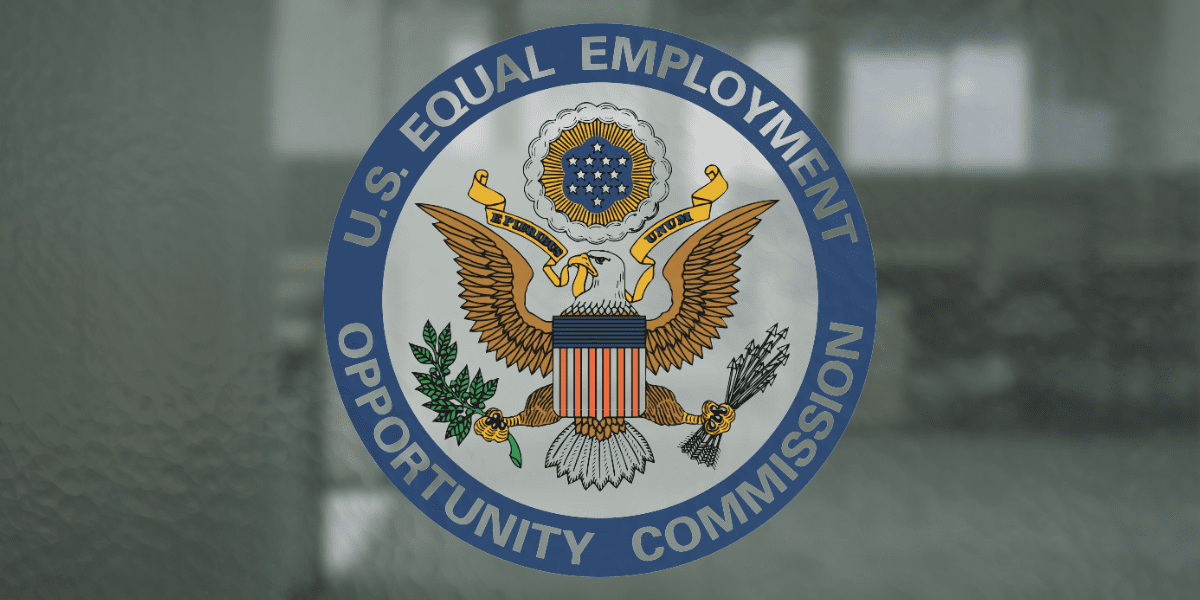Despite a government shutdown, the Equal Employment Opportunity Commission (EEOC) restored its quorum for the first time since Jan. 2025. When stacked against a government shut down, furloughs, and yet more RIFs, the EEOC might not rank on Federal employees’ priority lists. But make no mistake: this development will significantly impact Federal employment.
What Is a Quorum?
QUORUM comes from the Latin for “of whom” and refers to an organization’s membership: a minimum number “of whom” must be present for certain activities. In groups with quorum requirements, a particular number of members, at minimum, must be present when taking some or all actions. Title VII of the Civil Rights Act of 1964, which established the EEOC, also established such a quorum requirement. The EEOC is meant to have five commissioners. Three commissioners comprise a quorum. Meaning, three or more EEOC commissioners must be present for key moves, like issuing official guidance.
Why Did the EEOC Not Have a Quorum Before Now?
In January of his second term, President Donald J. Trump fired two of the EEOC’s four commissioners, leaving two: one Democrat-appointed, one Republican-appointed. He then named the Republican-appointed commissioner, Andrea Lucas, acting chair. Because an EEOC quorum requires three commissioners, the EEOC has been without a quorum since January 2025.
Without quorum, the EEOC was still permitted to receive, process, investigate, and resolve most individual EEO complaints. But the lack of quorum did forestall policy-level changes, like issuing or revising official rules and guidance, and prevented the larger litigation involved in more widespread, systemic cases.
Now that the Senate has confirmed Brittany Panuccio as a third EEOC commissioner, the agency once again has quorum: the required minimum number who must be present before taking major action.
What Will Happen Next with EEO Protections?
Acting Chair Lucas has long broadcasted her vision for the EEOC. Federal employees can expect official guidance to change accordingly now that the EEOC is positioned to bring its policies into alignment with the Trump Administration’s stated priorities.
Ready to book your consultation? Click below to pay our consultation fee and book your meeting with an attorney today!
Protection on the Basis of Gender Identity or Transgender Status
The 2024 Enforcement Guidance on Harassment in the Workplace has been on the books; it could not be revised without quorum. Gender identity, for example, has remained a protected basis; anti-trans discrimination in employment remains unlawful. However, such cases could effectively be dismissed by administrative shuffling. Following President Trump’s EO 14168—the first of several targeting transgender individuals—EEOC investigations into transgender and gender-identity discrimination cases ceased.
Official EEOC guidance will almost certainly be revised to remove these protections. Though, such a change would only serve to reflect what has already been in practice: electing not to enforce anti-discrimination provisions based in gender identity.
Protection on the Basis of Pregnancy and Related Conditions (PWFA)
Congress passed the Pregnant Workers Fairness Act (PWFA) in December 2022. It was not until April 2024 that the EEOC issued its enforcement regulations, compiling clarifications and interpretive guidance for employers and employees.
That guidance comes with a warning label at present. EEOC website banners note that a Federal court vacated those portions of Title VII that address pregnancy and related conditions, deeming them unlawful. In May 2025, U.S. District Court Judge David C. Joseph ordered the EEOC to revise its PWFA rules to remove “elective abortion” from the list of required conditions. Because the EEOC lacked a quorum at the time, they could not comply. The rule could not be revised.
Then-Commissioner Lucas had already issued statements against the EEOC’s PWFA final rule at the time. She argued the guidance overreached, mandating accommodation of any “condition, circumstance, or procedure that relates to any aspect of the female reproductive system.”
We can expect a revision of EEOC’s PWFA guidance accordingly. With both quorum and a Republican majority, references to abortion, menstruation, infertility treatments, menopause, etc. will no longer appear in the list of accommodated/protected conditions.
A Civil Rights Shift Not to Be Ignored
Federal employees have no shortage of news to track. It may seem futile to keep an eye on EEOC updates when one is either (a) working in a limited capacity without pay, or (b) furloughed at home. Perhaps this sentiment holds true even for those who do have EEO complaints: planned or in progress. Both Federal employees as well as those leaving the Federal workplace for the public or private sectors—whether by choice or not—should be aware. These EEOC developments impact civil rights protections for Federal, public, and private employees.
Federal employment is subject to laws and regulations that differ significantly from those in the private sector; consulting with a federal employment lawyer can make all the difference. Tully Rinckey’s team of dedicated federal employment attorneys is available to assist you today. Please call 8885294543 to schedule a consultation, or schedule a consultation online.
Michael C. Fallings focuses his practice on federal sector labor and employment law. Michael has extensive experience litigating cases on behalf of employees at the U.S. Merit Systems Protection Board (MSPB), Equal Employment Opportunity Commission (EEOC), and in both state and federal courts. He also has experience negotiating settlement agreements on behalf of federal employees. Michael has received numerous awards, including the 2026 Lawdragon 500 Leading Litigators in America, LawDragon 500 the Next Generation (2024-25), Lawdragon 500 Leading Civil Rights & Plaintiff Employment Lawyers (2025), National Black Lawyers Top 40 under 40, and Super Lawyers Rising Star (2023).
This article is for informational purposes only. Its content is not intended to constitute endorsement or legal advice, nor does it establish a client-lawyer relationship with Tully Rinckey PLLC or any of its affiliates.








